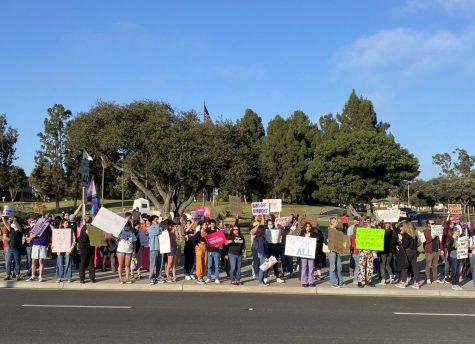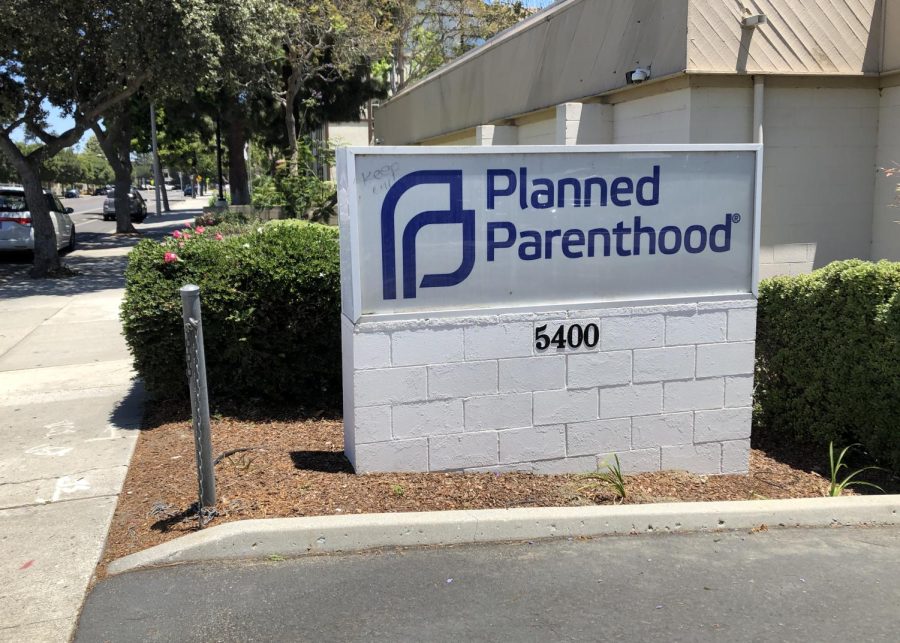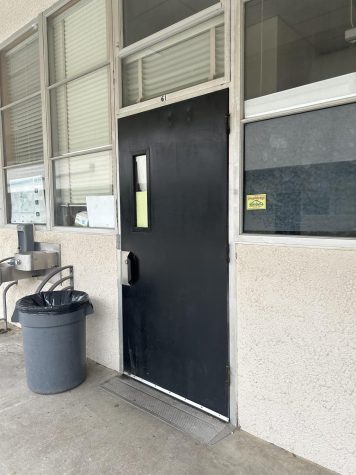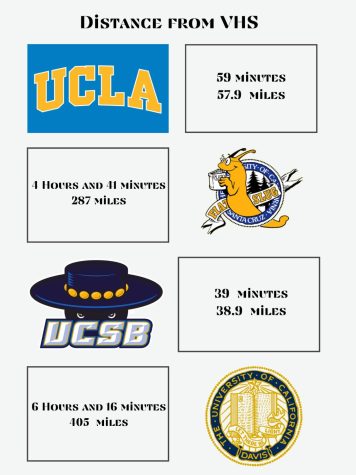Opinion: Abortion is a human right that demands protection
Abortion providers such as the Planned Parenthood health center on Ralston Street in Ventura are protected by California law, despite the U.S. Supreme Court’s decision to overturn Roe v. Wade. The federal government should protect abortion rights, lifting the burden from states to decide and ensuring that every American can abort their pregnancies if they so choose. Photo by: Alejandro Hernandez
June 29, 2022
With the U.S. Supreme Court’s overturning of Roe v. Wade, citizens must decide their preferred national direction
On June 24, the U.S. Supreme Court overturned Roe v. Wade, a nearly 50-year-old ruling that federally protected people’s right to an abortion. This overturning was made through the case Dobbs v. Jackson Women’s Health Organization. This decision was foreshadowed on May 2 when Politico leaked a Dobbs v. Jackson Women’s Health Organization draft opinion by Justice Samuel Alito.
The Supreme Court’s decision is a grave regression of American civil liberties. Roe v. Wade had decided that abortions were generally protected under the U.S. Constitution. Its overturning now allows for states to prohibit abortion services, which restricts reproductive rights. According to The Washington Post as of June 28, nine states have banned abortion; Alabama, Arkansas, Kentucky, Louisiana, Missouri, Ohio, Oklahoma and South Dakota. Four other states will ban abortion within a month and seven others will likely ban it.
The idea of any government, whether it be local, state or federal, deciding what people can do with their bodies, is concerning both legally and ethically. The right of individuals to determine what they accept for themselves is fundamental. Without it, people could be subjected to unelected acts. Stripping people from the right to safe and legal abortions removes choice from the equation. It does little more than put a barrier between those who need the procedure and the procedure itself. The need remains regardless of whether it is legal or not, forcing the desperate to unsafe abortions.
Maeve Searcy ‘24 said, “Roe v. Wade being overturned is simply infuriating. We have lost 50 years of progress. Not only have we taken a step back, but the overturning of Roe v. Wade isn’t stopping abortions, it’s making them illegal and unsafe. It isn’t decreasing the amount of abortions being performed, it just makes them illegal and dangerous, not to mention dramatically increasing the amount of people [who] will die from having abortions.”
According to a 1976 article by Centers for Disease Control (CDC) researchers, illegal abortions fell from about 130,000 to 17,000 between 1972 and 1974. This was a result of abortion legalization by Roe v. Wade, allowing for safer abortions. If illegal abortions were more prevalent before Roe v. Wade, it is safe to assume they will also be after it. 12 percent of Americans (about 40 million people) live in a state which has banned abortion. Those who can get pregnant in such states will have to resort to desperate measures like out-of-state travel for abortions. This is not in the best interests of either the state or the public.
Searcy said, “Abortion is a right for anyone who needs one. No questions asked. Abortion should be made readily available to anyone who needs it no matter their situation. We have to remember that it’s not only women that may need them, young girls and trans folk also do.”
Tessa Corker, a volunteer for the pro-life organization Love Life, said, “I believe that abortion should be outlawed from the moment of conception. I believe that God created every human being. Jesus came to this Earth in the form of a human being. He was a fetus in his mother’s womb. He lived a perfect sinless life that we couldn’t live and he died on the cross taking our punishment for sin. He rose on the third day with that victory over death so that whoever puts their faith in him can have eternal life. When you understand that each human being is made wonderfully in their mother’s womb and made in the image of God and is precious in his sight, that he died for them, then it doesn’t matter what stage they are in pregnancy. They need to be protected. We cannot justify in the law or in any other way killing another human being.”

Sophistic arguments from religion should have no bearing on public policy. Christian chicanery is tolerable when benign; when it’s on the other side of the wall between church and state. But when religion becomes evidence for decisions impacting millions, including those who do not subscribe to any faith, it is a step toward theocracy. That is not to say that pro-life religious people have any malice in their beliefs, but church and state must remain separate if the American system is to remain.
Whether or not life begins at conception is irrelevant in the context of abortion rights. Bodily autonomy supersedes the supposed rights of fetuses. People cannot be forced to carry pregnancies against their will. Life should be valued according to its sentience, which fetuses lack, especially relative to their carriers. In simplest terms, the interests of pregnant people outweigh any perceived value of the unborn. It may sound cruel, but it can be contrasted with a similar scenario like organ donation. People must consent to their organs being donated, even after death. Other’s need for organs is irrelevant as the donor’s bodily autonomy is preferred.
Bridget Glancy ‘25 said, “While I’m for reproductive rights, I think putting it in the hands of a more local government is better than leaving it up to the old white men in DC. I think it should be made legal by each state and people should be educated about emergency contraception such as plan b and other resources.”
The issue of abortion should be beyond the determination of states. Abortion is a human right; access to abortion services must be federally protected. While there may be an appeal to state rulings, not all state governments will ensure abortion rights. This is the phenomenon occurring with the overturning of Roe v. Wade. States are now free to choose their laws regarding abortion and other reproductive rights. They are no longer bound to the U.S. Constitution in that respect. It is wishful thinking to believe that devoutly conservative state politicians will not attempt to outlaw abortion at any cost. It is the responsibility of the federal government to protect the rights of all citizens, no matter their respective state’s attitude towards said rights.
The overturning of Roe v. Wade challenges the principles of popular sovereignty. Five justices were able to revoke a right that is supported by 61 percent of their constituents (according to the Pew Research Center). No votes were cast against abortion and it was an inherently undemocratic decision.
While the Supreme Court is an important arm of the U.S. judicial branch, it should not have the power to trample on public consensus. The court’s five to four decision represents a disconnect between the Supreme Court and the American public. If the question of abortion rights is passed onto individual states, it must be decided by a referendum. Kansas is the only state without state abortion protections that will hold a referendum.
California is a state with pre-existing abortion protections. However, California voters will vote on a state constitutional amendment to explicitly protect abortion rights. According to a July 2021 Public Policy Institute of California survey, 79 percent of likely voters in the state did not want Roe v. Wade to be overturned. While California appears to be safe from anti-abortion legislation, and abortion services will continue to be offered at locations such as the Planned Parenthood at 5400 Ralston St. in Ventura, the state must support the plight of those in abortion-restrictive states.
The loss of Roe v. Wade should be lamented by Americans. It is a regression for civil liberties that opens the gate for other regressions; namely same-sex marriage and contraception. The federal government must protect its citizens’ right to an abortion lest they are harmed by illegal procedures. Abortions will continue to happen no matter the law, so it is up to lawmakers whether or not they put their constituents’ health and safety first above sophistic dogma.













![Malani Del Rosario ‘25 said, “This summer I am taking a history course at Ventura College. I am hanging out with all my friends super often and [I’ll also be] reading a bunch of books.” Photo by: Isabel Andrade](https://thecougarpress.org/wp-content/uploads/2023/06/1-COVER-PHOTO--356x475.jpg)





